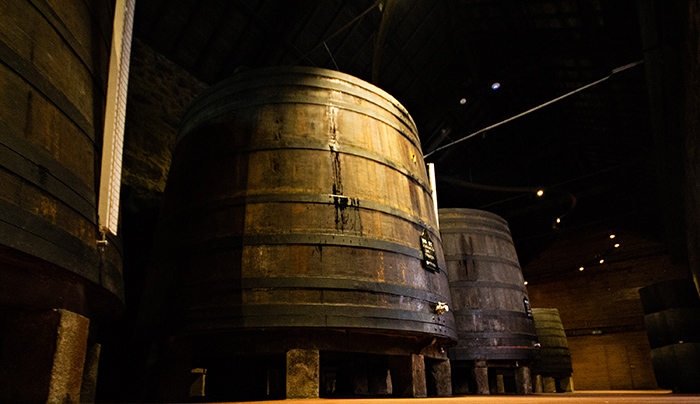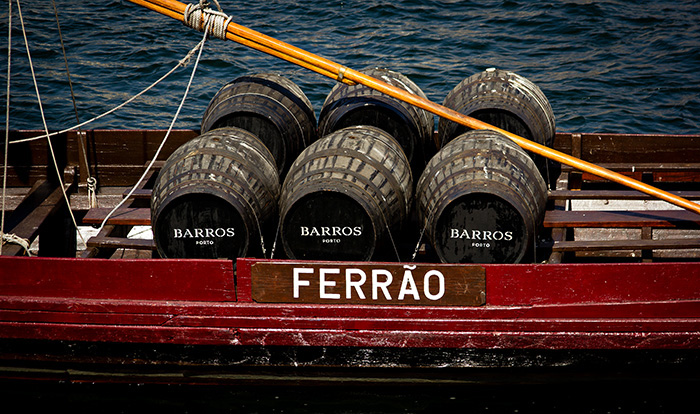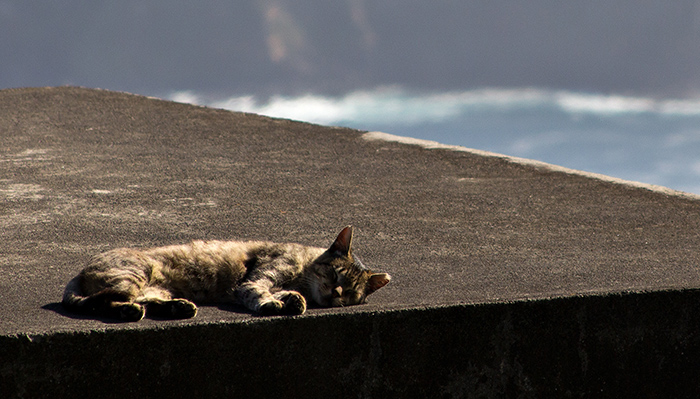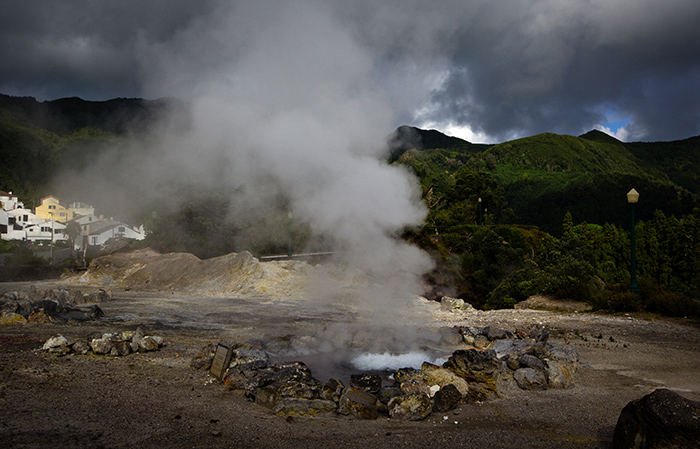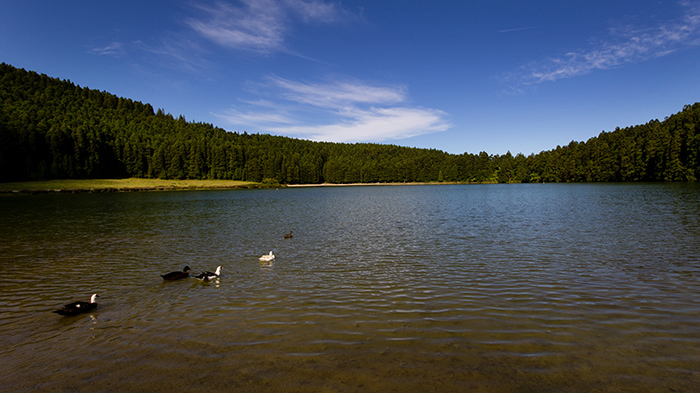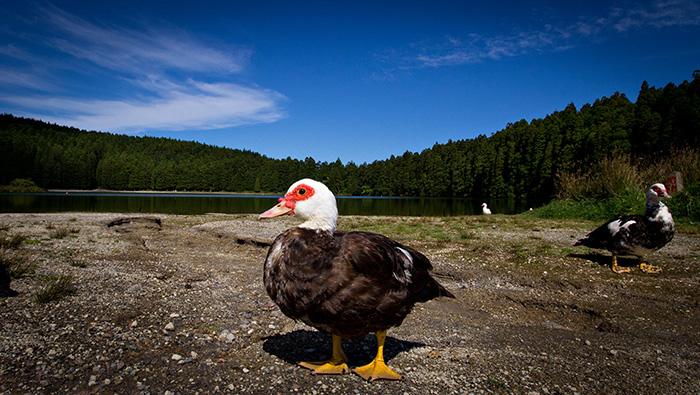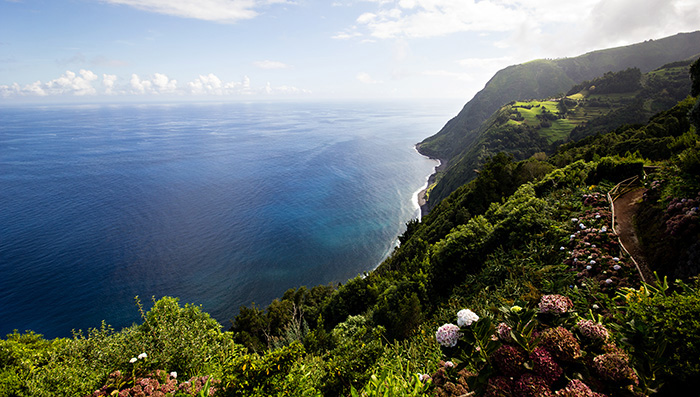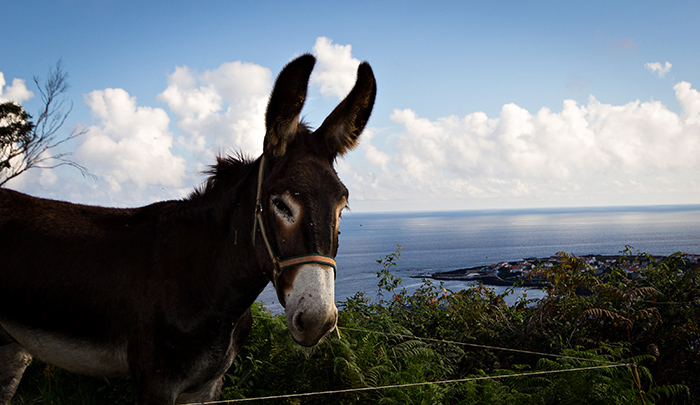Hello everyone! This time a short trip to Porto and Azores, the Portuguese islands in the middle of the Atlantic ocean, at 1400 km from the coast. So, we left with islands in the ocean (the Little Antilles) and we meet again with islands in the ocean. Since in the meanwhile I lived in another island, Malta, it is obvious that by now I need a blue sea barrier around, to protect me from a world that doesn’t love me anymore.
Mhmm, this is a little bullshit. But I don’t understand why when these bullshits are told by idiotic singers, scribes and similar, it means they have a poetic soul and sensitivity. When the same things are told by me, they are immediately recognized as bullshits, I can’t see the logic behind. Anyway yes, I agree it’s a bullshit.
But let’s go back to the trip. I visited Porto with an Italian friend living in Malta, Giamma, where we met another Italian friend who moved there from Malta few months ago, Riccardo. After, Giamma returned to Malta and I went with Riccardo to the islands of Sao Miguel and Terceira in the Azores.
I had already visited Portugal about fifteen years ago. That time I visited the south and Lisbon.
Let’s see the photos…
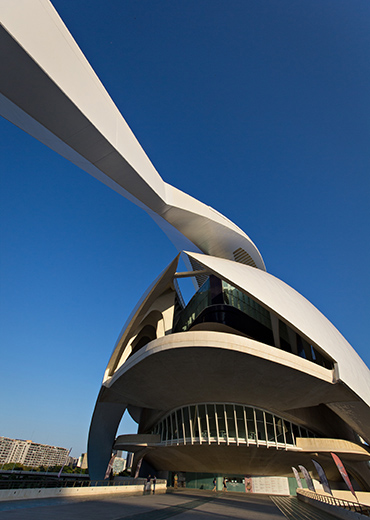 -”Dekaro, this is not Porto! It’s Valencia!”
-”Dekaro, this is not Porto! It’s Valencia!”
Well done! And that is why I’m so proud of having you as my blog readers, cultured and attentive. It is in fact the Opera in the City of Arts and Sciences of Valencia, where, on the way, I stopped for one day and a half.
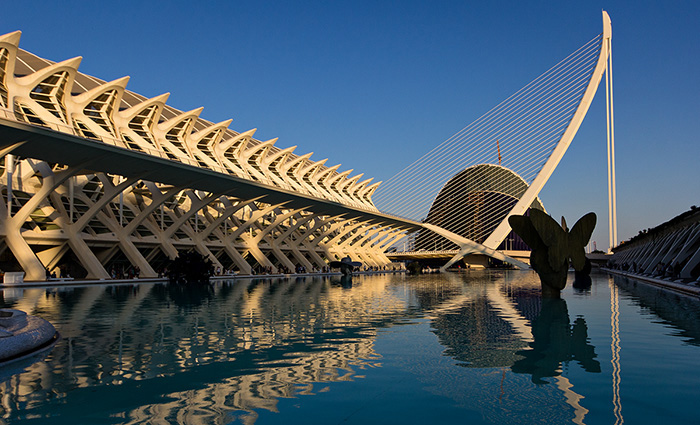 Another glimpse of the scenic City of Arts and Sciences.
Another glimpse of the scenic City of Arts and Sciences.
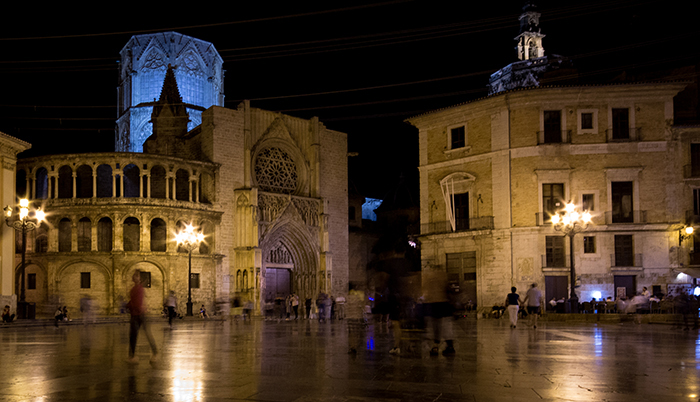 Valencia, Spain’s third city after Madrid and Barcelona, was founded by the Romans in 138 BC. as a colony for war veterans. Between the 6th and 11th centuries it grew under Muslims until it reached its maximum splendor in the 15th century as the financial and economic capital of the Kingdom of Aragon. His decline started with the expulsion of the Moors in the seventeenth century. In the Civil War, as capital of the Republican, it was among the last to fall. In recent years, there is strong growth and economic recovery.
Valencia, Spain’s third city after Madrid and Barcelona, was founded by the Romans in 138 BC. as a colony for war veterans. Between the 6th and 11th centuries it grew under Muslims until it reached its maximum splendor in the 15th century as the financial and economic capital of the Kingdom of Aragon. His decline started with the expulsion of the Moors in the seventeenth century. In the Civil War, as capital of the Republican, it was among the last to fall. In recent years, there is strong growth and economic recovery.
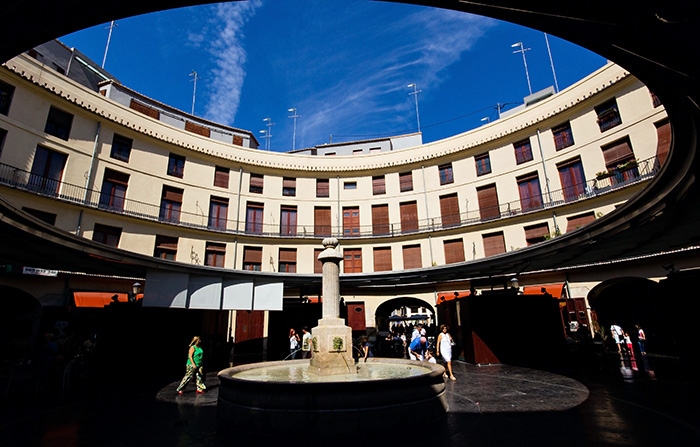 A round square, Plaza Redonda.
A round square, Plaza Redonda.
 And here we are in Porto! To be precise, Port is the one on the right of the river. To the left is Vila Nova de Gaia, where most of the wine cellars that produce Port wine are located.
And here we are in Porto! To be precise, Port is the one on the right of the river. To the left is Vila Nova de Gaia, where most of the wine cellars that produce Port wine are located.
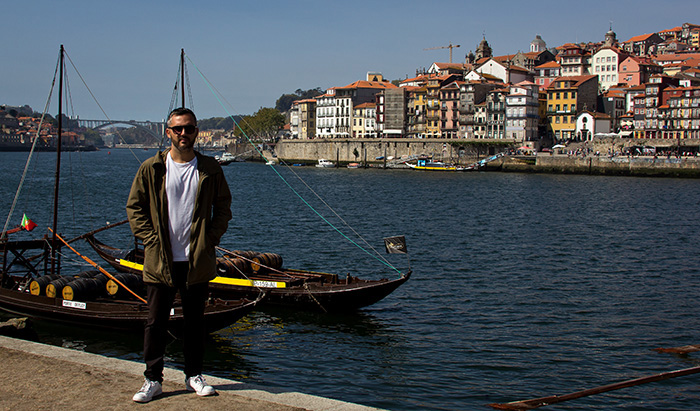 My Italian friend, but now as me Maltese, Giamma.
My Italian friend, but now as me Maltese, Giamma.
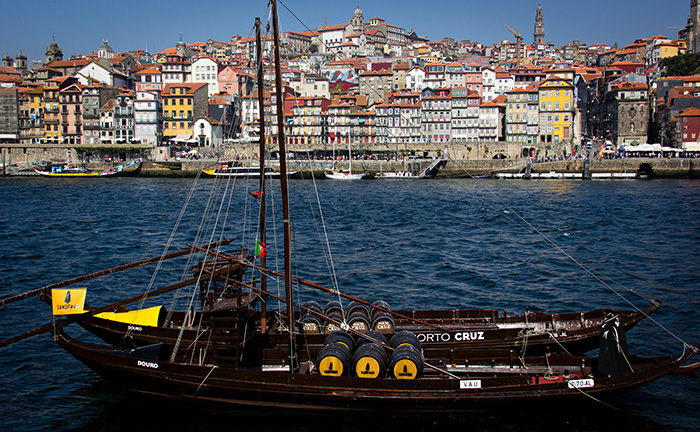 Boats with wine barrels. In the background, Porto.
Boats with wine barrels. In the background, Porto.
For a series of climatic, environmental and geographical occurrences, the Douro region’s grapes are particularly sweet. To stop its fermentation is added aguardiente. So, it comes out a fortified wine particularly sweet and strong.
It is particularly loved by the British who have long been the main producers and importers.
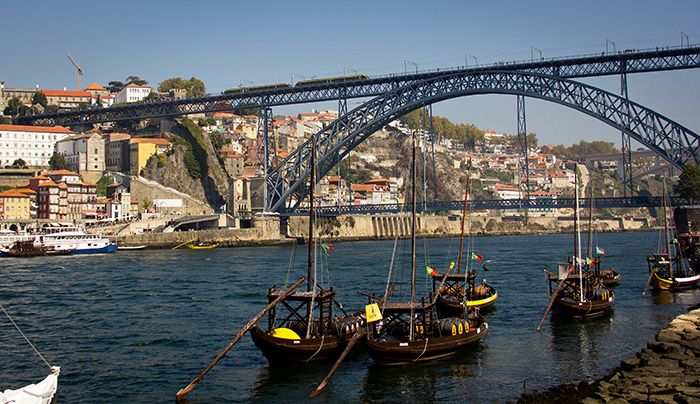 Port and Vila Nova de Gaia are connected by 6 bridges. This bridge, Dom Luis I, was designed by a student and colleague of Eiffel, Seyrig. The project for the bridge won against a project by Eiffel, but the influence of his master is evident.
Port and Vila Nova de Gaia are connected by 6 bridges. This bridge, Dom Luis I, was designed by a student and colleague of Eiffel, Seyrig. The project for the bridge won against a project by Eiffel, but the influence of his master is evident.
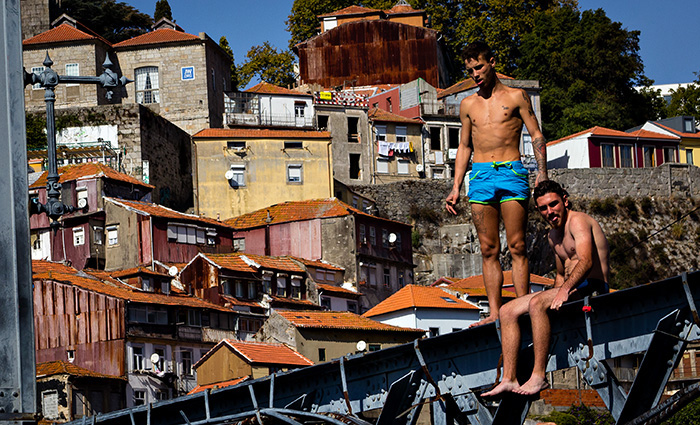 Guys dive from Dom Luis Bridge.
Guys dive from Dom Luis Bridge.
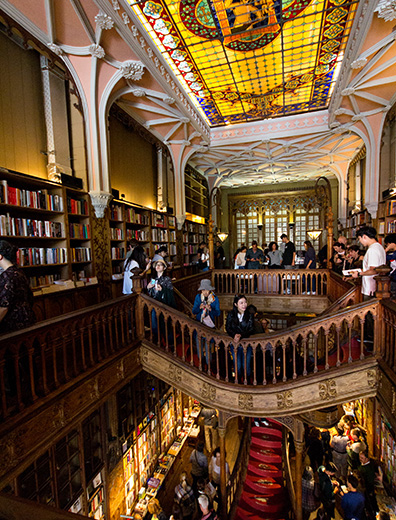 The old Lello Bookstore, considered one of the most beautiful bookstore in the world.
The old Lello Bookstore, considered one of the most beautiful bookstore in the world.
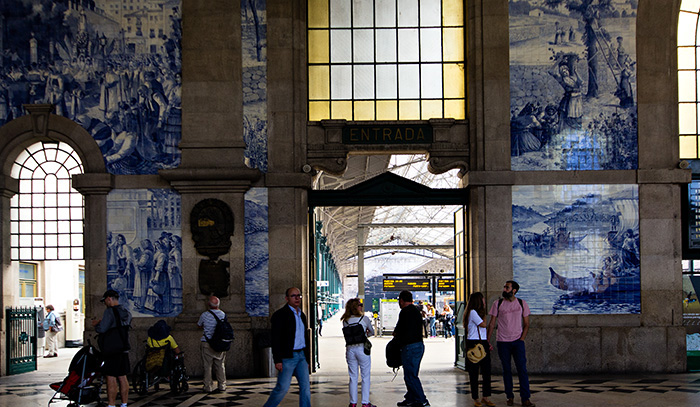 Sao Bento railway station, covered with Azulejo, the painted ceramic tiles, typical of Portuguese and Spanish architecture.
Sao Bento railway station, covered with Azulejo, the painted ceramic tiles, typical of Portuguese and Spanish architecture.
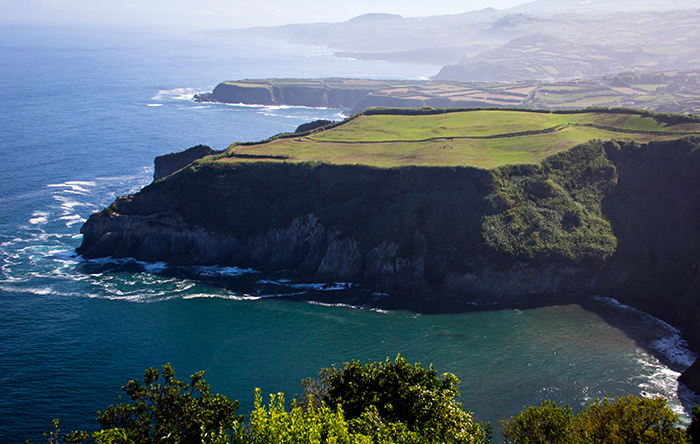 And finally in the Azores. On the island of Sao Miguel, the largest. It is about 63 km long and 15 km wide.
And finally in the Azores. On the island of Sao Miguel, the largest. It is about 63 km long and 15 km wide.
The Azores are an archipelago of 9 islands of volcanic origin. We do not know exactly when they were first reached by Europeans. The islands are visible in some maps of the middle of the fourteenth century, although aligned in an almost horizontal position.
In 1432 Portugal claimed possession of the islands and began a faint colonization. There were no indigenous peoples.
The lonely islands in the middle of the Atlantic ocean have always been an useful stop-over for the intercontinental navigators (already Christopher Columbus stopped there returning from his first voyage in America). They have also an important strategic position and in the Second World War the US gained permission from Portugal to set up their own military base on Terceira Island. Needless to say, it is still there.
Statistical Pill: The United States has 800 military bases outside its own territories. But of course this is not because it’s the most monstrous imperialist machine of history, let’s not follow these old communist conspiracy theories! Those bases are there for us. To protect us. But protect us from whom? it is natural to wonder. But it’s obvious: by ourselves!
But let’s not wander off now. Let’s go back to the photos.
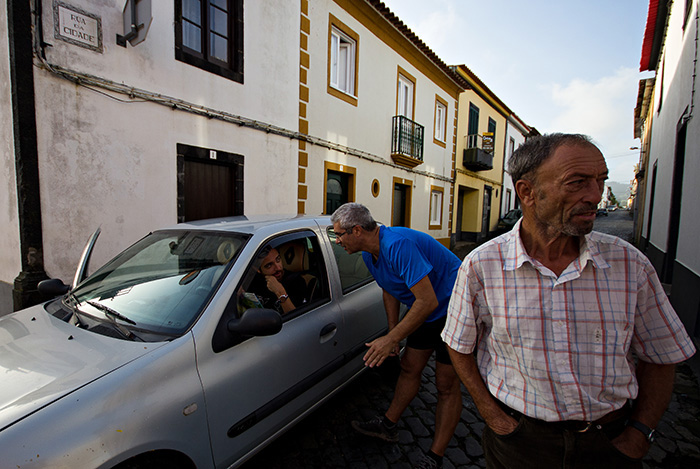 Riccardo, in the car, asks information in a Sao Miguel street.
Riccardo, in the car, asks information in a Sao Miguel street.
 In the interior of Sao Miguel there are many beautiful lakes.
In the interior of Sao Miguel there are many beautiful lakes.
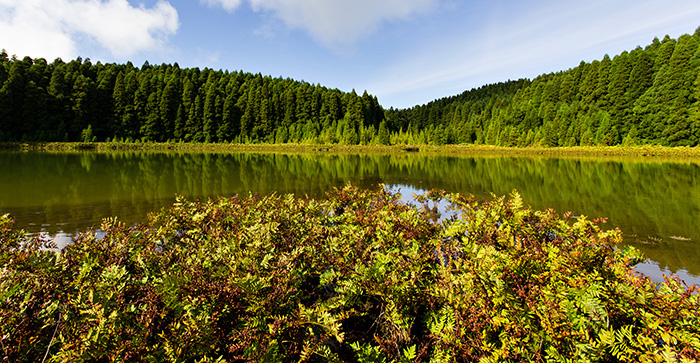 The lakes shine in the colors of the rich vegetation around.
The lakes shine in the colors of the rich vegetation around.
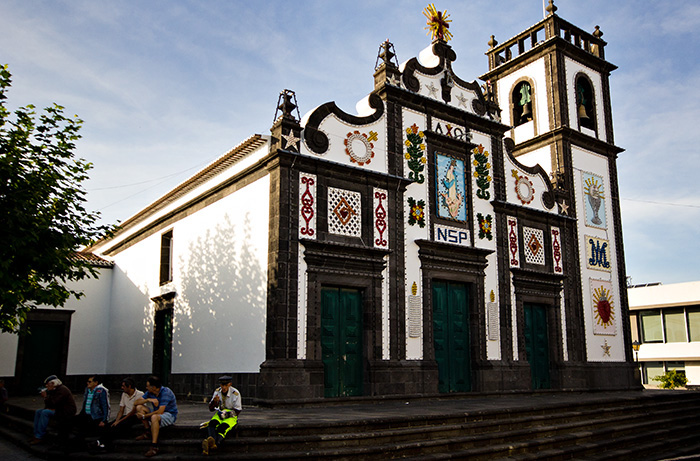 A typical Azores church. Azores people are very religious.
A typical Azores church. Azores people are very religious.
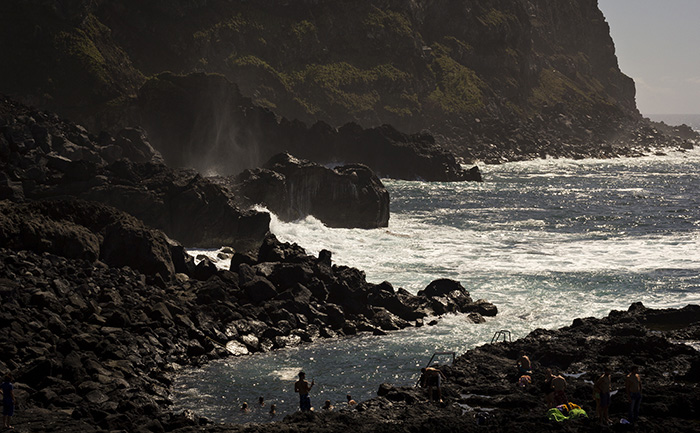 Cliff of black Volcanic rocks by the sea. Some people use a natural swimming pool to take a bath.
Cliff of black Volcanic rocks by the sea. Some people use a natural swimming pool to take a bath.
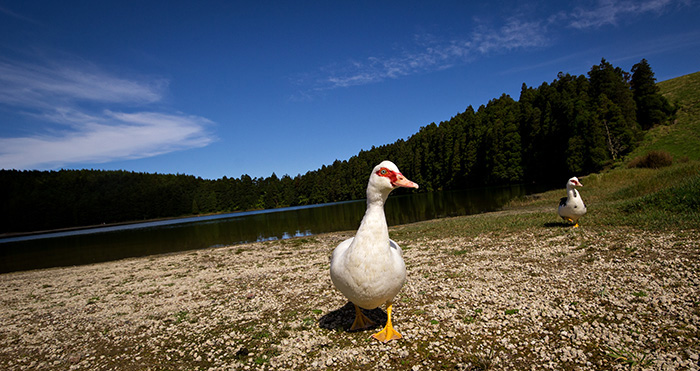 Another duck. Yes, I’m specializing in photos of ducks. It’s time also for me to find a specialization.
Another duck. Yes, I’m specializing in photos of ducks. It’s time also for me to find a specialization.
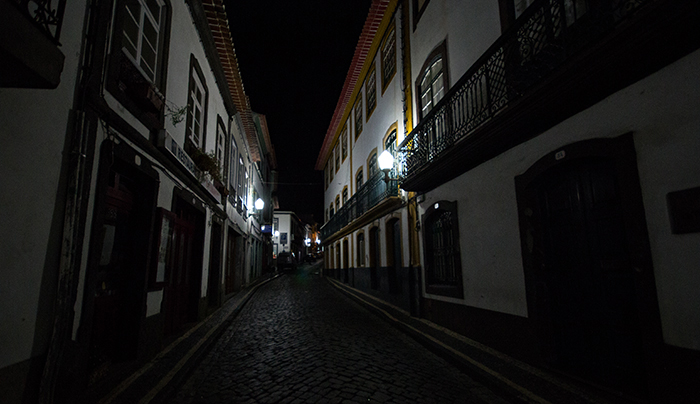 Here we are in the other visited island, Terceira. Less spectacular than Sao Miguel but with a very beautiful town, Angra do Heroísmo, the historical capital of the Azores and the first to be founded in 1534.
Here we are in the other visited island, Terceira. Less spectacular than Sao Miguel but with a very beautiful town, Angra do Heroísmo, the historical capital of the Azores and the first to be founded in 1534.
-”Dekà, but put some photos of exotic animals. We can see cats ducks and donkeys also here!”
No, don’t start now with your usual boring criticisms. There are not exotic animals, there are those brought by colonists and are the same we have.
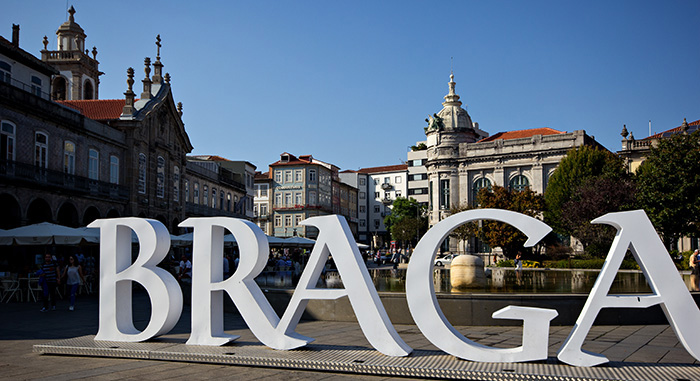 Finally, I visited another town north of Portugal, but I don’t tell you the name, you have to find out by yourself. As Valencia, it was founded by the Romans, went under Islamic domination and reached its maximum splendor in the centuries following the “reconquista”, becoming an important religious center.
Finally, I visited another town north of Portugal, but I don’t tell you the name, you have to find out by yourself. As Valencia, it was founded by the Romans, went under Islamic domination and reached its maximum splendor in the centuries following the “reconquista”, becoming an important religious center.
Yes, that is! Good.
In the meantime, I have reached the age of forty-six! Ehhhh. 46 years and 96 nations visited. Not bad. So if I continue like that at 100 years I will have visited all the nations of the world! Actually no, I will do this: I will reach the 99th and I stop. Because at the end it was too much easy for me to reach one hundred. Yes, I know, I’m a little snob.






















































